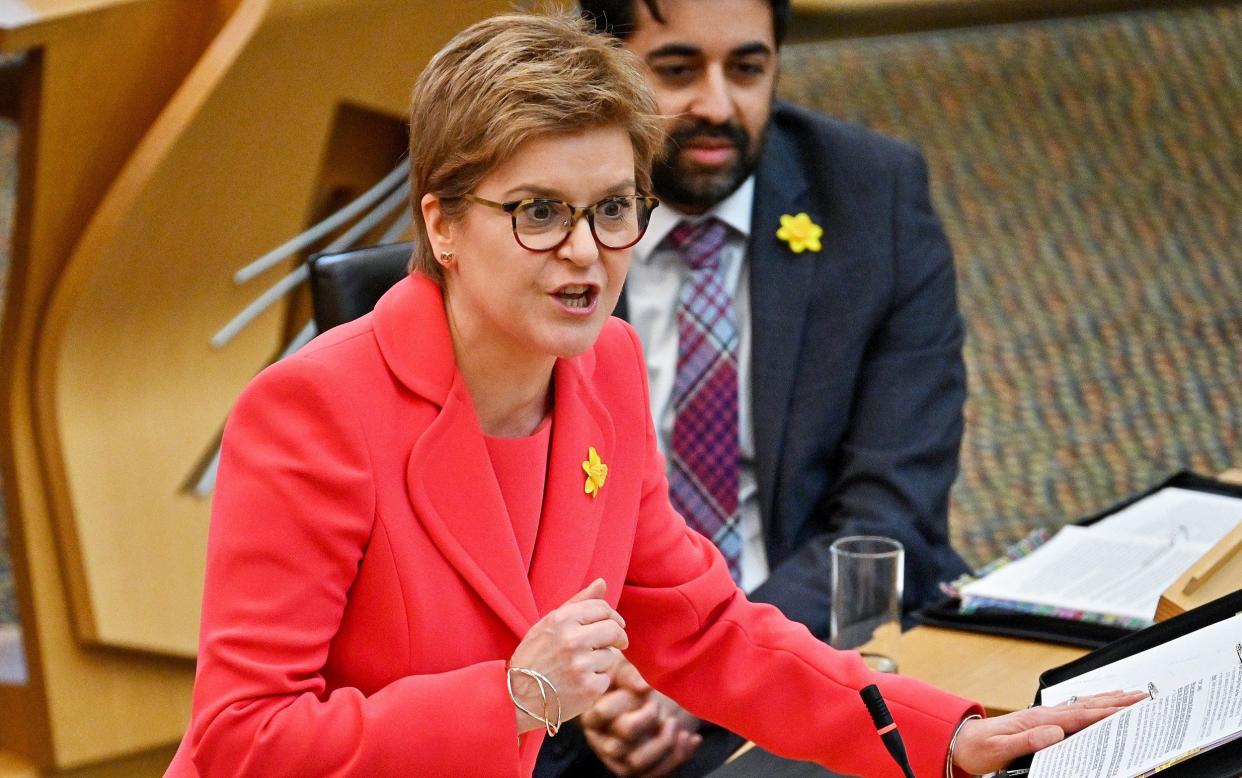SNP costs taxpayers £150,000 after failed attempt to ‘redefine’ women to include transgender people

A failed SNP effort to “redefine the meaning of women” to include transgender people is set to cost taxpayers more than £150,000.
On Tuesday, For Women Scotland was awarded full costs by Scotland’s top civil court five weeks after a landmark legal victory in which it successfully argued a stipulation that said trans women should count towards female quotas on public boards was unlawful.
The ruling means that the SNP-run administration will use public money to pay a substantial proportion of the feminist campaign group’s costs in bringing a judicial review, which was dismissed last year, and the successful appeal.
Insiders with knowledge of the case expect the bill to be in the “ballpark” of £100,000, in addition to at least £58,666 which the Scottish Government has spent so far on external representation and costs to fight the case.
Marion Calder, a director at For Women Scotland, said women had been forced “to pay twice” to protect their rights, by making donations to a crowdfunder to pay for the action, and to the Scottish Government’s failed defence through their taxes.
While the group will not be reimbursed fully, due to how legal expenses are calculated, it is anticipated that the final cost to the public purse will be “significant”.
Breaking News. Our remedy hearing this morning confirmed that the faulty definition of 'women' would be struck from Gender Representation on Public Boards Act and that we are awarded full costs.
Thank you all for your support!#SexNotGender #WomenWontWheesht #SexMatters pic.twitter.com/JZvPQoyMcO— For Women Scotland (@ForwomenScot) March 22, 2022
Judges also ruled that the flawed definition of women included in the legislation, which stated that anyone “living as a woman” should count towards female quotas on public boards, must be removed.
Meghan Gallacher, the Scottish Tory MSP, said that the SNP Government's “poor law-making” and decision to defend faulty legislation in court had come at an unacceptable cost to the taxpayer.
“The courts have found that the SNP Government’s approach was not only not within their power, but it also failed to take into account the differences between protected characteristics,” she said.
“The Government has a duty to make sure that the laws they make are robust, effective and within their competence. With this, the SNP has failed to do so, and this is set to cost the taxpayer upwards of £150,000.”
For Women Scotland raised nearly £200,000 through a crowdfunding campaign to bring the judicial review and appeal.
The group successfully argued that Holyrood had gone beyond its devolved powers in legislation that obliged public bodies to work towards an equal gender split in boardrooms.
The legislation, passed in 2018, stated that trans women should be counted as women in the quotas.
Protected characteristic
While Holyrood has the power to introduce gender quotas on public boards, it was ruled that the legislation overstepped this by effectively redefining the meaning of women - a protected characteristic under the 2010 Equality Act, which remains reserved to Westminster.
Feminists have argued that counting trans women as women in workplace gender quotas is unfair, as those who transition later in life will not have encountered the same barriers - such as taking time off due to pregnancy - which positive discrimination is designed to address.
The ruling stated that under the definition adopted in the SNP’s legislation, it would theoretically be possible for public boards to meet their quota without having a single biological woman on its board.
The Scottish Government initially did not rule out appealing the ruling to the UK Supreme Court, but has now accepted defeat.
The SNP Government recently published separate legislation which would allow people born or resident in Scotland to change their legal sex by self-declaration, removing any need for a medical diagnosis.
Campaigners have said that those proposals are also likely to be subject to a legal challenge should they pass at Holyrood.
A Scottish Government spokesman said: “We are disappointed by the outcome and are considering the terms of the court’s judgment.”

 Yahoo News
Yahoo News 
